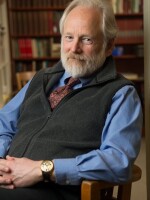On this day in 1938, when Britain and France sold out Czechoslovakia to Nazi Germany to avoid a general European war, most of the world hailed it as bringing “peace in our time.” Anti-war public opinion was strongly influenced by bitter memories of World War I and disillusionment with the flawed peace that followed.
Britain’s prime minister, Neville Chamberlin caught the mood nicely, observing, “How horrible, fantastic, incredible, it is that we should be digging trenches and trying on gas-masks here because of a quarrel in a faraway country between people of whom we know nothing.”
But British essayist Harold Nicolson believed that appeasement would guarantee war, not avoid it.
Nicolson wrote “This confirms me in the thought that diplomacy is based upon a knowledge of foreign psychology and that it is owing to the lack of that knowledge... that the government has landed us in war.”
By “psychology” Nicolson meant culture - literature, music, the arts, cuisine, fashion, a society’s manner of living and thinking, everything that determined character and behavior - in other words, the humanities; not simply economics and politics.
Nicolson’s wisdom resonates today. Whether we favor American intervention in the Middle East or not, we’re hampered by a fundamental lack of knowledge of the peoples and cultures with which we deal. Without it, Americans – like the British of the 1930’s – are condemned to set policy wearing cultural blinders. As we’ve learned from recent experience in Iraq and Afghanistan, such tunnel vision doesn’t serve us well.
Nicolson argued that only thorough grounding in the humanities permitted the cross-cultural understanding necessary for international success. But Americans have never been good about supporting the humanities and Congress now threatens to cut federal humanities funding in half.
This would be a mistake. Thirty years ago, a national commission published a disturbing review of American education called “A Nation At Risk”. The authors concluded, "If an unfriendly foreign power had attempted to impose on America the mediocre educational performance that exists today, we might well have viewed it as an act of war." As our eroding commitment to the humanities demonstrates, we’ve done little since to address the problem.
At the same time, we glory in American exceptionalism, a concept which carries the implicit assumption that the world understands and accepts us simply because of what and who we are. We’re learning that’s not true. If America is truly to lead others the least we can do is to try to understand them. Endeavoring to see the world as others see it is not weakness but a strength that protects us from folly.
It’s ironic that, as America has assumed a larger role in the wider world, we’ve consistently reduced our attention to the study of the very things that would make that role effective. We are indeed the architects of our own frustration.






